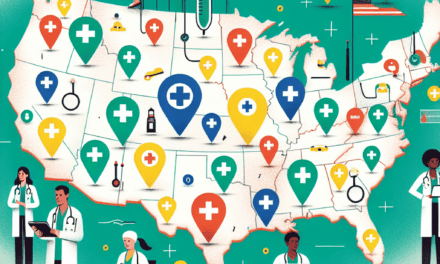Internet Use Boosts Mental Wellbeing in People Over 50, Study Reveals
The digital age has transformed the way we communicate, access information, and engage with the world around us. While much of the focus has been on younger generations, recent studies have highlighted the positive impact of internet use on mental wellbeing, particularly among individuals over the age of 50. This article delves into the findings of a groundbreaking study that reveals how internet use can enhance mental health in older adults, exploring various dimensions of this phenomenon.
The Study: An Overview
In a comprehensive study conducted by researchers at the University of California, Los Angeles (UCLA), data was collected from over 5,000 participants aged 50 and older. The study aimed to investigate the relationship between internet use and mental wellbeing, focusing on factors such as social connectivity, cognitive engagement, and emotional health. The results were striking, indicating that regular internet use significantly correlates with improved mental health outcomes.
Key findings from the study included:
- Participants who used the internet regularly reported lower levels of depression and anxiety.
- Increased online social interactions were linked to higher levels of life satisfaction.
- Engagement with online content, such as news articles and educational resources, contributed to cognitive stimulation.
- Older adults who utilized the internet for health-related information experienced better management of chronic conditions.
- Access to online communities provided emotional support and reduced feelings of loneliness.
Enhancing Social Connectivity
One of the most significant benefits of internet use for individuals over 50 is the enhancement of social connectivity. As people age, they often face social isolation due to retirement, loss of loved ones, or mobility issues. The internet serves as a powerful tool to bridge these gaps, allowing older adults to maintain and even expand their social networks.
Online platforms such as social media, video calls, and messaging apps enable older adults to connect with family and friends, regardless of geographical barriers. For instance, a study by the Pew Research Center found that 65% of adults aged 50 and older use social media, with Facebook being the most popular platform. This connectivity fosters a sense of belonging and community, which is crucial for mental wellbeing.
Moreover, online communities and forums dedicated to specific interests or health issues provide a space for older adults to share experiences and seek support. For example, platforms like Reddit and specialized health forums allow users to engage in discussions that resonate with their personal experiences, reducing feelings of loneliness and isolation.
Case studies illustrate the transformative power of online connectivity. Consider the story of Margaret, a 72-year-old widow who turned to Facebook after losing her husband. Through the platform, she reconnected with old friends and joined groups focused on her hobbies, such as gardening and travel. This newfound social engagement not only improved her mood but also led to new friendships and a more active lifestyle.
Cognitive Engagement and Lifelong Learning
The internet is a treasure trove of information, offering endless opportunities for cognitive engagement and lifelong learning. For older adults, engaging with online content can stimulate the mind, enhance cognitive function, and promote mental agility. The study from UCLA found that participants who actively sought out educational resources online reported higher levels of cognitive satisfaction and lower rates of cognitive decline.
Online courses, webinars, and educational videos provide accessible avenues for older adults to learn new skills or explore new interests. Platforms like Coursera, Udemy, and Khan Academy offer a wide range of subjects, from art history to computer programming, catering to diverse interests. This engagement not only keeps the mind sharp but also instills a sense of accomplishment and purpose.
Additionally, reading news articles, blogs, and research papers online can enhance critical thinking skills and keep older adults informed about current events and advancements in various fields. A study published in the Journal of Gerontology found that older adults who regularly consumed news online demonstrated improved cognitive flexibility and problem-solving abilities.
Consider the example of John, a retired engineer who began taking online courses in digital photography. Not only did he learn a new skill, but he also connected with fellow photography enthusiasts through online forums. This engagement not only enriched his knowledge but also provided him with a creative outlet, contributing to his overall mental wellbeing.
Health Management and Information Access
Access to health-related information is another critical aspect of how internet use can boost mental wellbeing in older adults. The ability to research medical conditions, treatment options, and wellness strategies empowers individuals to take charge of their health. The UCLA study found that older adults who utilized the internet for health information reported better management of chronic conditions and a greater understanding of their health needs.
Online resources such as WebMD, Mayo Clinic, and various health blogs provide valuable information on managing conditions like diabetes, hypertension, and arthritis. Furthermore, telehealth services have gained popularity, allowing older adults to consult with healthcare professionals from the comfort of their homes. This accessibility reduces barriers to care and enhances the overall healthcare experience.
Moreover, online support groups and forums dedicated to specific health issues offer emotional support and shared experiences. For instance, individuals dealing with chronic pain can connect with others facing similar challenges, sharing coping strategies and emotional support. This sense of community can significantly alleviate feelings of anxiety and depression associated with chronic health conditions.
Take the case of Linda, a 68-year-old woman diagnosed with diabetes. By utilizing online resources, she learned about dietary changes and exercise routines that could help manage her condition. Additionally, she joined an online support group where she found encouragement and advice from others in similar situations. This proactive approach not only improved her physical health but also enhanced her mental wellbeing.
Reducing Loneliness and Isolation
Loneliness and social isolation are significant concerns for older adults, often leading to adverse mental health outcomes. The internet provides a platform for individuals to connect with others, reducing feelings of loneliness and fostering a sense of community. The UCLA study highlighted that older adults who engaged in online social interactions reported lower levels of loneliness and higher levels of life satisfaction.
Online platforms offer various ways for older adults to engage socially, from participating in virtual events to joining interest-based groups. For example, many community centers and organizations have transitioned to online programming, allowing older adults to participate in activities such as book clubs, exercise classes, and art workshops from home.
Additionally, video conferencing tools like Zoom and Skype enable face-to-face interactions with family and friends, bridging the gap created by physical distance. A study published in the Journal of Aging and Health found that older adults who used video calls reported feeling more connected to their loved ones, leading to improved emotional wellbeing.
Consider the story of George, an 80-year-old man who felt increasingly isolated after moving to a new city. By joining an online book club, he not only discovered new literature but also formed friendships with fellow members. This engagement provided him with a sense of purpose and connection, significantly improving his mental health.
Challenges and Considerations
While the benefits of internet use for mental wellbeing in older adults are evident, it is essential to acknowledge the challenges and considerations that come with it. Digital literacy remains a significant barrier for many older individuals, as not everyone is comfortable navigating online platforms or accessing information. This lack of familiarity can lead to frustration and discourage internet use.
Moreover, the prevalence of misinformation online poses a risk, particularly in health-related contexts. Older adults may encounter misleading information that could adversely affect their health decisions. It is crucial for individuals to develop critical thinking skills and discernment when consuming online content.
Additionally, excessive internet use can lead to negative outcomes, such as increased screen time and reduced physical activity. Striking a balance between online engagement and offline activities is vital for overall wellbeing. Encouraging older adults to participate in both virtual and in-person activities can help mitigate these risks.
To address these challenges, community organizations and family members can play a pivotal role in supporting older adults in their internet use. Offering digital literacy workshops, providing resources for safe online practices, and encouraging balanced engagement can empower older individuals to harness the benefits of the internet while minimizing potential drawbacks.
Conclusion: Embracing the Digital Age for Mental Wellbeing
The findings from the UCLA study underscore the transformative potential of internet use for individuals over 50. By enhancing social connectivity, promoting cognitive engagement, facilitating health management, and reducing feelings of loneliness, the internet serves as a valuable tool for improving mental wellbeing in older adults.
As society continues to evolve in the digital age, it is essential to recognize the importance of supporting older adults in their internet use. By fostering digital literacy, promoting safe online practices, and encouraging balanced engagement, we can empower older individuals to embrace the benefits of the internet while navigating its challenges.
In summary, the internet is not just a tool for communication; it is a gateway to improved mental health and wellbeing for older adults. By harnessing its potential, we can create a more connected, informed, and fulfilled aging population.





